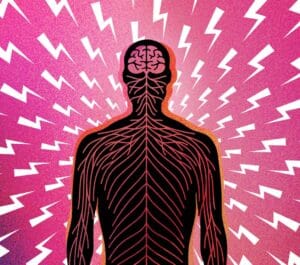Introduction
We live in a world of one day delivery, expectations of time frame of delivery or results keeps decreasing. Hence that leads craving quick solutions to our problems. The whole idea of fast weight loss is undeniably tempting. The picturization of losing a lot of weight in a minimum time can be very alluring. But, is it a safe and sustainable approach?
Does Fast Weight Loss Really Exist?
Let us put it out there that weight loss, a sustainable healthy weight loss can only be done step by step with a proper guidance. Fast weight loss is a concept often propagated by fad diets. These do give great weight loss in a limited time while giving unrealistic expectations for the person going through the program. While it is possible to lose weight quickly, it may not be a healthy or sustainable approach. Before you sign up for these programmes, pause for a bit and read ahead.
Here are a few reasons why fast weight loss might not be the right path:
Weight Rebound:
Do not get struck in this Yo-Yo cycle. Many times rapid weight loss of leads to quick weight regain. The body’s natural response to extreme calorie restriction is to slow metabolism and conserve energy. Once regular eating resumes, the lost weight tends to return.


Muscle Loss
Muscle is very important in our body to maintain metabolism and protect organs and joints. Fast weight tends to disregard muscle building. This kind of approach involves loss of muscle, and losing it can have long-term consequences.


Metabolic Slowdown
Bosy has a individual metabolism to help in every day function. Crash diets can lead to a decreased metabolic rate, making it more challenging to lose weight in the long run.Food is a source of many nutrients in the body. Not just for weight gain or loss we need food for life. Severely restricting calorie intake can lead to nutrient deficiencies, impacting overall health and well-being. This is not what you would expect coming from a weight loss. A study published by John Hopkins University explains this well.


Chronic Pain
Fast weight loss will do harm more than good when it comes to pain management. Some people experience an increase in chronic pain conditions due to the stress on the body caused by fast weight loss.


The Importance of Professional Guidance
Do keep in mind, before getting into any diet program, it’s vital to consult with a healthcare professional and a registered dietitian. They can help you understand the pros and cons of different approaches and design a personalized plan that suits your individual needs.


Conclusion
fast weight loss may seem like a shortcut to your ideal body, but it comes with potential risks and drawbacks. The key to a successful weight loss journey is not speed but sustainability. Consult with professionals to ensure that your chosen approach is the one for you. The diet should aligns with your health goals and consider the long-term implications of your decisions.
References
- Dansinger, M. L., Gleason, J. A., Griffith, J. L., Selker, H. P., & Schaefer, E. J. (2005). Comparison of the Atkins, Ornish, Weight Watchers, and Zone Diets for Weight Loss and Heart Disease Risk Reduction: A Randomized Trial. JAMA, 293(1), 43-53.
- National Institute of Diabetes and Digestive and Kidney Diseases (NIDDK). (2020). Dieting and Gallstones. Retrieved from https://www.niddk.nih.gov/ health-information/ weight-management/ dieting-gallstones
- Mann, T., Tomiyama, A. J., Westling, E., Lew, A. M., Samuels, B., & Chatman, J. (2007). Medicare’s search for effective obesity treatments: diets are not the answer. American Psychologist, 62(3), 220-233.
- Wing, R. R., & Phelan, S. (2005). Long-term weight loss maintenance. The American Journal of Clinical Nutrition, 82(1 Suppl), 222S-225S.
- Mehler, P. S., & Andersen, A. E. (2017). Eating Disorders: A Guide to Medical Care and Complications. Johns Hopkins University Press.



